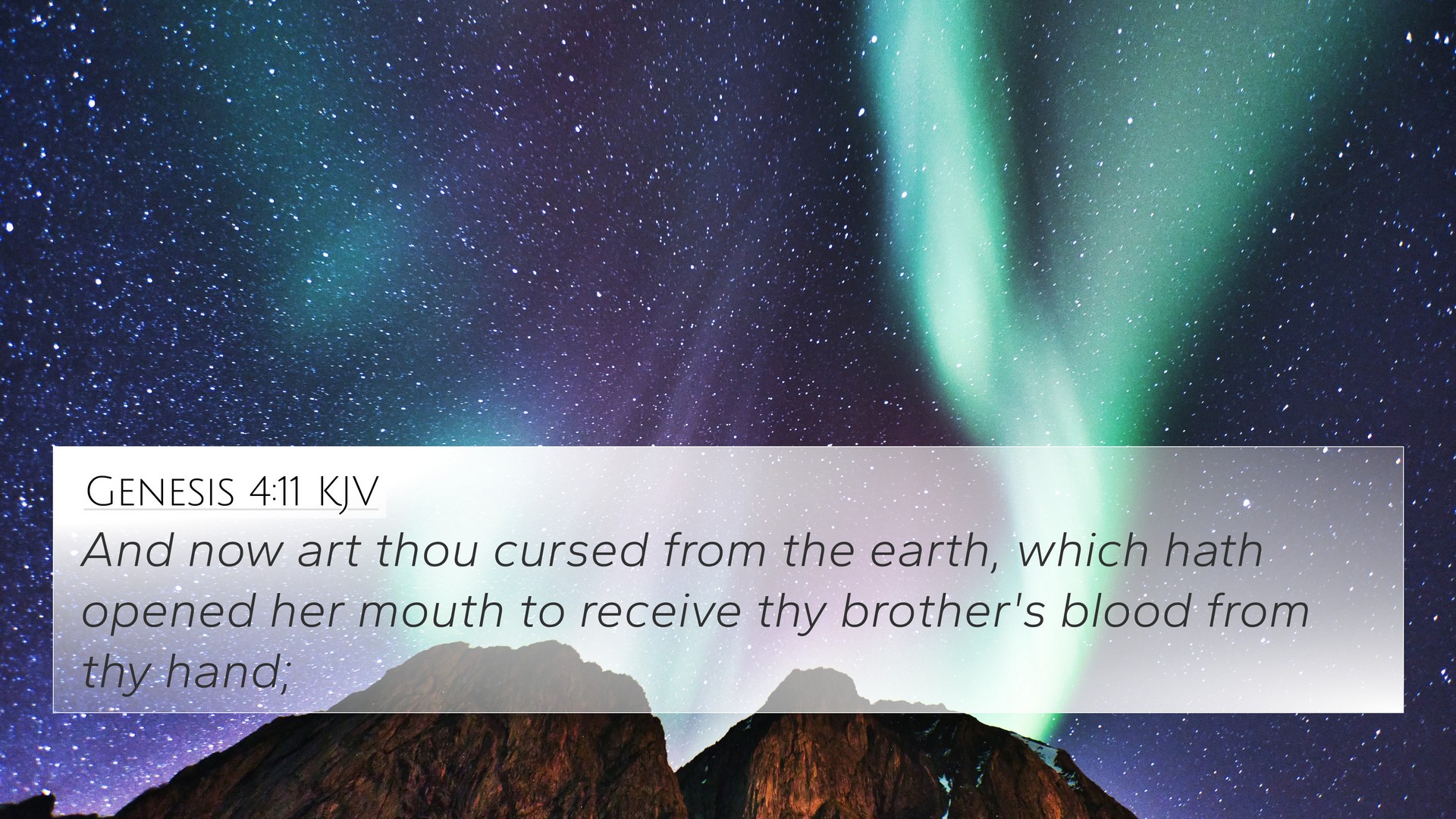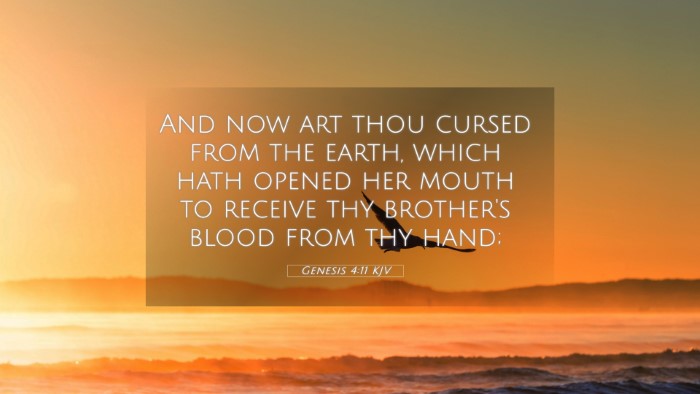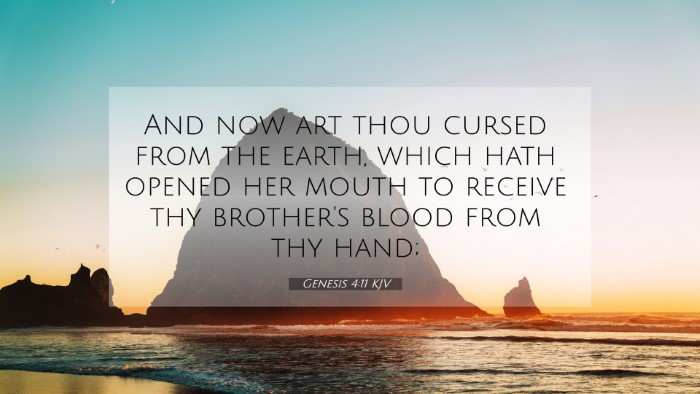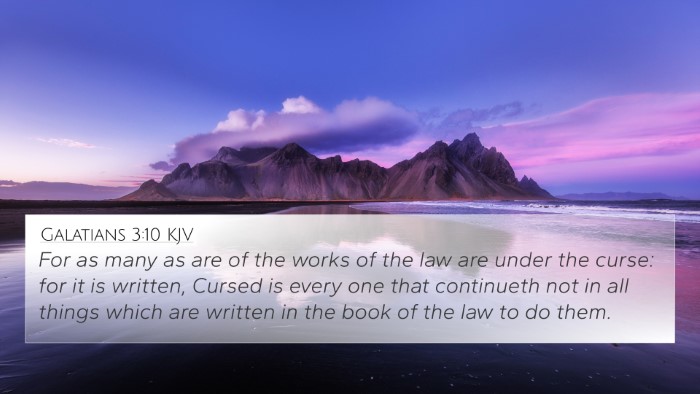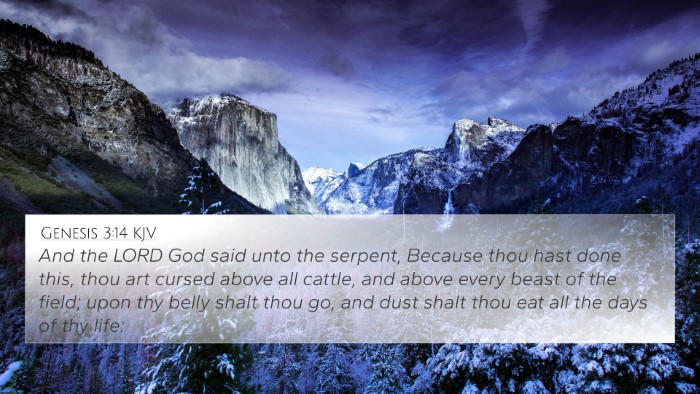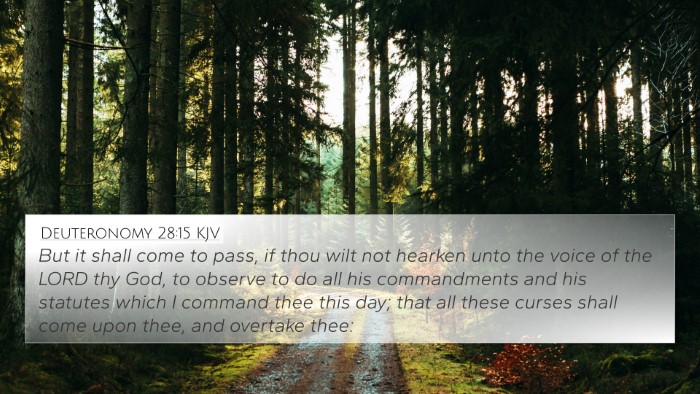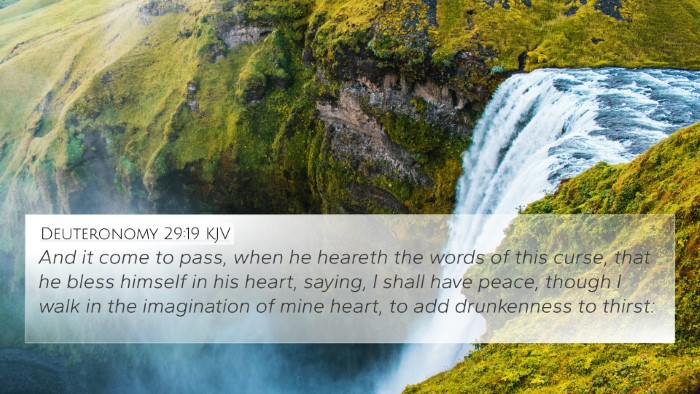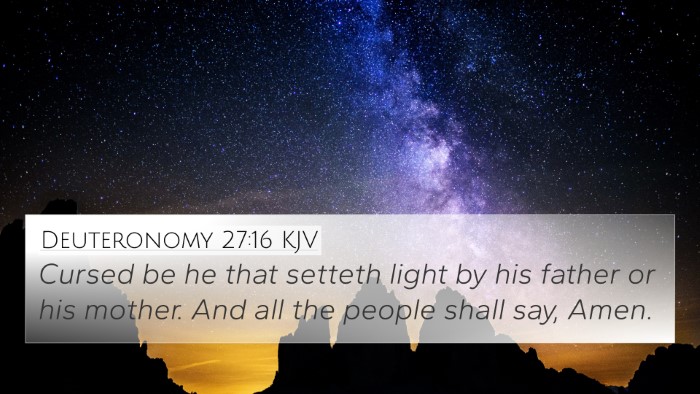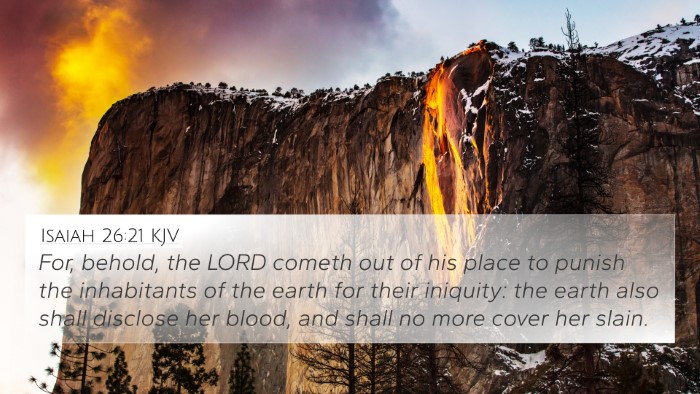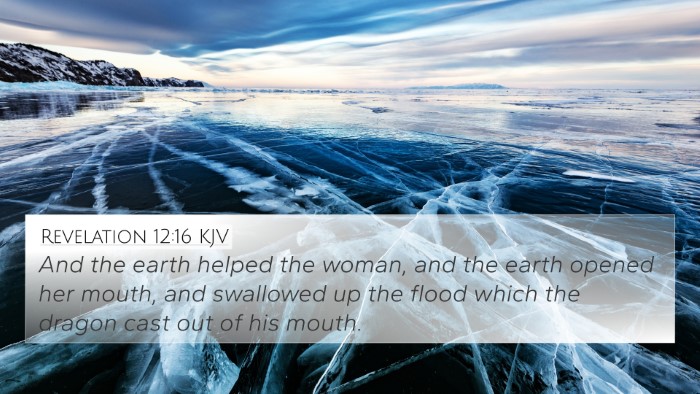Understanding Genesis 4:11
Genesis 4:11 states: "And now art thou cursed from the earth, which hath opened her mouth to receive thy brother's blood from thy hand." This verse follows the narrative of Cain and Abel, highlighting the consequences faced by Cain after committing fratricide.
Commentary Insights
To thoroughly understand this verse, we can glean insights from several public domain commentaries.
Matthew Henry's Commentary
Matthew Henry emphasizes the gravity of Cain’s sin and how it brings about God’s curse upon him. He notes that the earth, which previously provided sustenance to Cain, will now bear witness against him. This act of violence not only severed Cain from his brother but also from the very soil that had granted him life. Henry also points out the enduring nature of this curse, as Cain is not only cursed but also marked to ensure that no one would kill him, representing God's mercy amidst judgment.
Albert Barnes' Commentary
Albert Barnes explains that God’s declaration to Cain signifies the severity of his sin. The phrase "cursed from the earth" indicates that Cain would find it difficult to farm the land that once yielded produce for him, suggesting a life of wandering and unfulfillment. Barnes explores the concept of bloodshed and the consequences it incurs on the land, reinforcing the idea of divine retribution for sin. Cain’s punishment serves as a warning to all humanity about the repercussions of moral transgressions.
Adam Clarke's Commentary
Adam Clarke adds that this verse illustrates the deep spiritual implications of Cain's action—murder not only causes physical death but also severs spiritual ties. Clarke discusses the ancient cultural context regarding blood and its sacredness, noting how this act was an affront not just to Abel but to God as well. The consequences that follow reflect a cosmic disturbance that arises from such vicious acts, which corrupts the order established by God.
Cross-References and Thematic Connections
Genesis 4:11 is deeply interconnected with several other scripture passages that illustrate themes of sin, retribution, and divine justice. Below are some notable cross-references:
- Genesis 4:10 - God highlights Abel's blood crying out from the ground, indicating the deep consequences of Cain's actions.
- Numbers 35:33 - Discusses the sanctity of blood and its connection to guilt, linking the concepts of land and justice.
- Hebrews 12:24 - Mentions the blood of Christ that speaks better things than that of Abel, drawing a parallel between Old Testament sacrificial systems and New Testament redemption.
- Leviticus 17:10-14 - Illustrates the prohibition against eating blood, emphasizing its life-giving properties and divine significance.
- Matthew 23:35 - References the blood of the righteous, underscoring the ongoing theme of accountability for the shedding of innocent blood.
- Revelation 6:10 - The cry of the martyrs reflects Cain's sin and God's eventual justice for those wronged.
- Romans 12:19 - Instructs on leaving vengeance to God, echoing the principle that God oversees justice for wrongdoings.
Thematic Bible Verse Connections
Genesis 4:11 serves as an essential point of connection in theological studies:
- It connects the themes of sin and alienation from God, reiterating how personal choices impact one’s relationship with the divine.
- It provides a warning against violence, showing how such actions lead to profound repercussions.
- It illustrates the concept of divine judgment that extends beyond immediate satisfaction.
Application and Reflection
In modern application, Genesis 4:11 encourages individuals to reflect on their actions and the broader implications of sin in their lives and communities. It serves as a reminder of the importance of compassion and the sacredness of life. Furthermore, it promotes an understanding of accountability not just to God, but to each other as members of humanity.
Conclusion
Genesis 4:11 invites both individual and communal introspection into the nature of sin and its consequences. By studying various commentaries and understanding the scriptural cross-references, believers can gain a rich perspective on the text and its application in their lives. The connective tissue of scripture aids in grasping the full narrative of humanity's relationship with God, making Genesis 4:11 a pivotal verse in any comprehensive biblical study.
